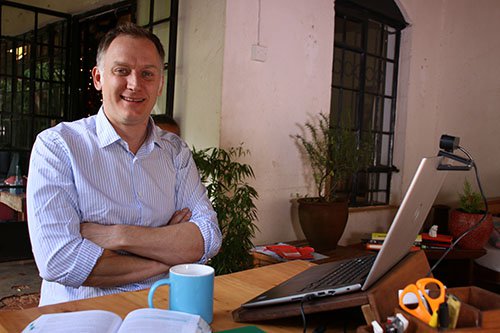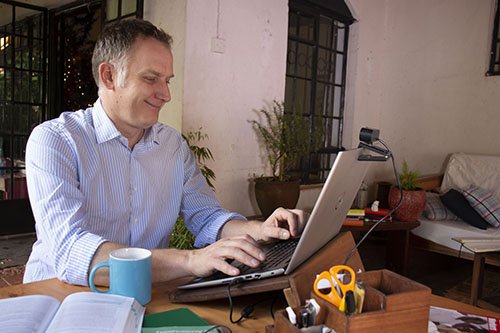The CHS, a cutting-edge solution to promote quality and accountability
"CHS is right now a cutting-edge tool to answer key questions around social accountability for organisations and stakeholders. I’m proud to take part into this process of change."
Video testimony
Hi Andrea! Tell us about your most significant experience as an auditor.
The most significant experience for me was related to the opportunity of witnessing and joining a national organisation’s journey towards improving their internal quality management system. It happened during their initial certification. Basically, they were at an already impressive level of adherence to the CHS principles, and I have been informed they further improved throughout the audit cycle. It was a beautiful experience, because it testified how the CHS can be equally applied both to the broader quality assurance environment of global NGOs and to localised entities... There are inherent elements in the Standard that make it successful in both cases.
What do you think of CHS Certification and CHS as a standard?
I’m mainly a programme manager besides being registered auditor with HQAI. Accountability is part of the programme management vision. In this sense, the 9 principles of the CHS are an effective tool to anchor accountability to each and every stage of programme management within quality management systems. I think that this is extremely helpful for both communities and organisations, which are otherwise often distant from decision-making processes. The CHS bridges this gap in an organisation, particularly in terms of social and not just financial accountability.

What is the biggest challenge you had to face and how did you overcome it? How has Covid impacted on your work?
One week before my first audit, because of the pandemic, we as HQAI auditors had to switch to a virtual audit modality and agree on alternative ways to reach the same level of objectiveness in our analysis. It was a challenging but good learning experience. Now, after 2 years working within the Covid pandemic, we have learned how to apply the methodology of information triangulation and a risk approach that have proved to work well also remotely, with a broader number of interviews than in the past. However, that first audit turned out to be very challenging because, at the end of March 2020, I was evacuated from my duty station, so you can imagine... What was challenging was not so much the methodology we used in reorganising country visits as remote ones, but rather the personal situation in which I found myself together with my family.
What keeps you motivated, Andrea?
I started working in the development and humanitarian field back in 2013, but previously I had volunteered in this sector roughly since 2001. The discussion on accountability is a long journey, and I believe that CHS is right now a cutting-edge tool to answer key questions around social accountability for organisations and stakeholders. So, what motivates me is that I’m proud to take part into this process of change and the debate on how to improve quality and accountability in humanitarian and development work. I truly believe that in the future innovation will push CHS to a new stage. It is in fact a young initiative, but one that condenses the experience of an intellectual dialogue that has been ongoing for decades. Going forward, technology and the effects of the Grand Bargain might enable us to see an even more vibrant and effective environment around quality and accountability.
Category